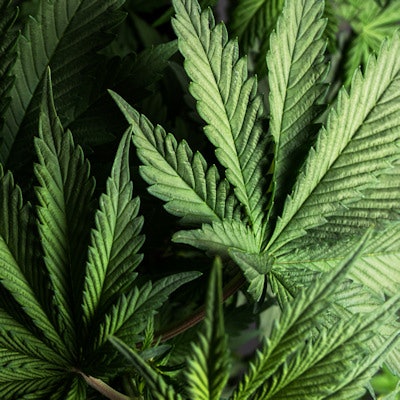
As many people around the U.S. celebrate the marijuana-centered holiday 4/20 today, they may not realize the plant has more to offer than a good high. Combining antibiotics with a cannabis-derived chemical may be the answer to antibiotic-resistant bacteria, according to a recent study.
Mixing cannabidiol (CBD) with antibiotics enhances the effects of the germ-killing drugs, the researchers found.
"The antibacterial effects of [bacitracin (BAC)] against [Staphylococcus aureus] as well as other Gram-positive bacteria can be enhanced by cannabidiol originating from the cannabis plant," wrote the authors, led by Claes Søndergaard Wassmann from the Research Unit of Molecular Microbiology at the University of Southern Denmark in Odense (Scientific Reports, March 5, 2020).
Giving antibiotics a boost
The overprescribing of antibiotics is a major public health issue, feeding concerns of antibiotic resistance. Research has shown that about 80% of prescriptions for preventive antibiotics written before dental work are unnecessary and that some patients who receive antibiotics prior to treatment end up visiting emergency rooms, experience allergic reactions, or get Clostridioides difficile infections.
With fewer antibiotics available to treat resistant bacterial infections, the world is at risk of entering a preantibiotic era. Alternative strategies, including the use of helper compounds, are being explored to help prevent this. Helper compounds such as manuka honey and cannabinoids have been shown to enhance the efficacy of antibiotics. In addition, cannabinoids may be more effective at reducing bacteria associated with dental plaque.
Researchers found that combining CBD and bacitracin had a much more powerful effect on the gram-positive bacteria S. aureus, a major pathogen that causes community- and hospital-acquired disease, than treatment with antibiotics alone. Multidrug-resistant clones of the bacteria have spread globally.
Showing promise
Combining CBD with bacitracin prevented the bacteria from dividing normally and made the bacterial membrane unstable. Additionally, the expression of cell division and autolysis genes in the bacteria was reduced, according to the researchers.
The minimum inhibitory concentration was 4 µg/mL for methicillin-resistant S. aureus (MRSA), Listeria monocytogenes, and methicillin-resistant Staphylococcus epidermidis (MRSE) and 8 µg/mL for Enterococcus faecalis, indicating that Gram-positive bacteria are sensitive to CBD, the group wrote.
Minimum inhibitory concentrations of BAC were determined for the four Gram-positive bacteria in the presence of CBD to assess whether the cannabinoid would induce a higher susceptibility of bacitracin with Gram-positive bacteria. The minimum inhibitory concentrations of the antibiotic decreased by eight to at least 64-fold, demonstrating that less antibiotic was needed to kill the bacteria when it was combined with CBD, according to the researchers.
Though no specific limitations were noted, Wassmann and colleagues added that the combination does not appear to be effective in fighting Gram-negative bacteria.
"The combination of CBD and BAC is suggested to be a putative novel treatment in clinical settings for treatment of infections with antibiotic resistant Gram-positive bacteria," they concluded.




















